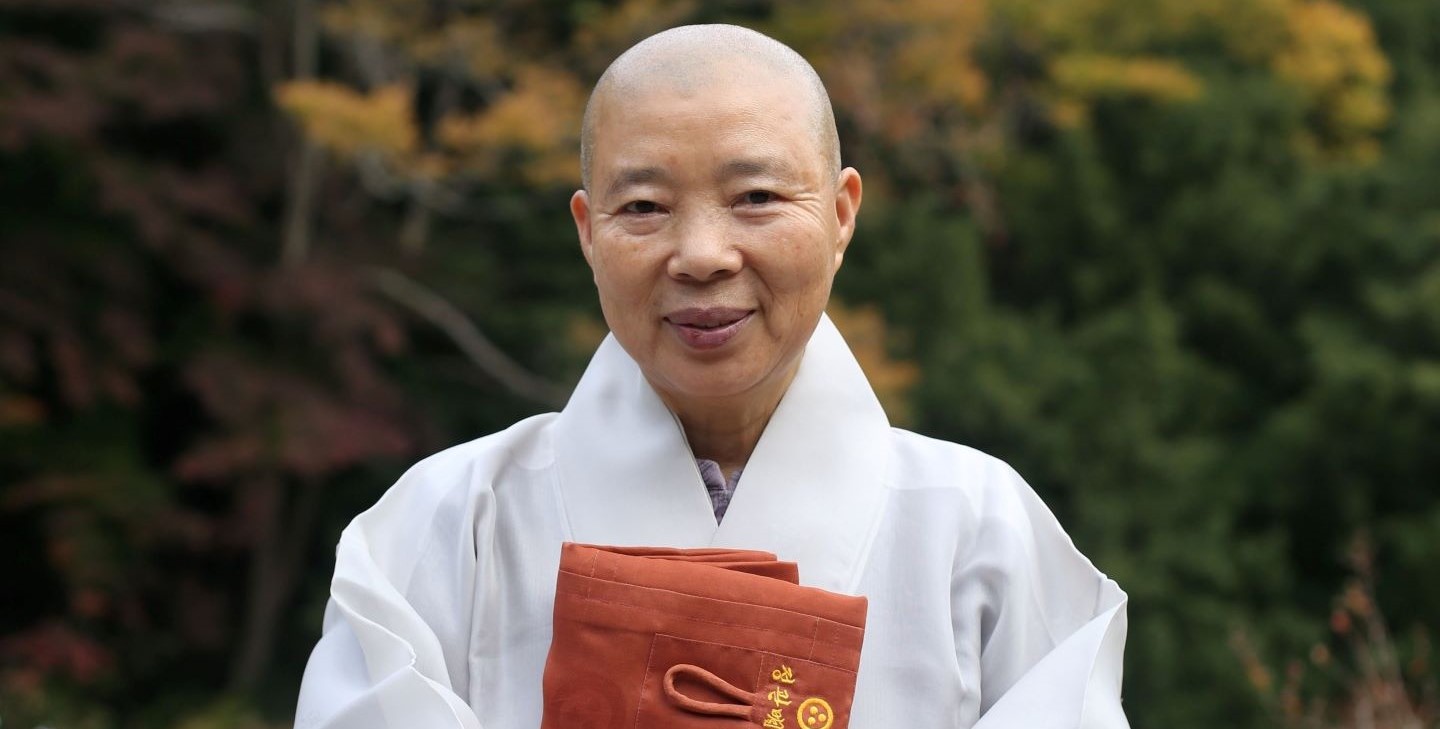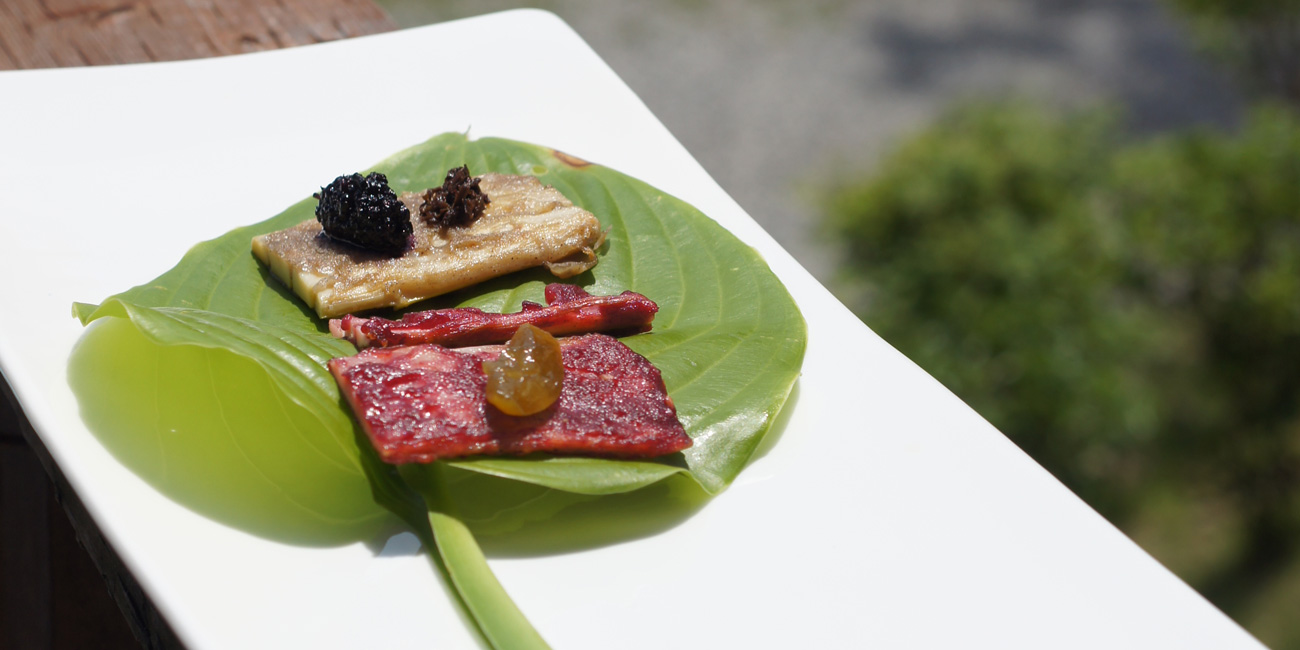The roots that connect us: A conversation with Chef Jeong Kwan
IFAD Asset Request Portlet
Asset Publisher
The roots that connect us: A conversation with Chef Jeong Kwan
Estimated reading time: 5 minutes
Jeong Kwan is a Zen Buddhist nun and also a well-known chef.
She grew up on her parents’ farm in Yeongju, South Korea. At age 17, after her mother’s death, she decided to become a nun, vowing that she would never pass down the grief she was experiencing to another child.
Over the years, she has retained her deep connection with farming and nature. She is now famous in South Korea as a philosopher-chef, both for her sustainable vegan recipes and her pure and sincere approach towards cooking.
I met up with her at Baekyangsa, a temple nestled in the forests of a national park. Our conversation touched upon everything from traditional Korean temple food, to the connections between farming and cooking, to what we need to do to rebalance our food systems.
Q: Can you tell me a bit more about Buddhist temple food?
Temple food is a link that connects the mental and physical energy of monks while they are training. Throughout the four seasons, we rely on nature to get seasonal ingredients. Then, we ferment the leftovers to eat during the next season. It is a sustainable technique that allows you to share in the full life of a plant across the four seasons.
Q: I heard that you grow your own ingredients. As both a chef and a farmer, what do you think is the most important thing to consider when cooking?
Farming is getting to know the ingredients. Through farming, we can come to understand how the climate and the universe change, how our lives work, and how our lives are deeply interrelated with nature. Farming means that you are among the things that form you; therefore, to cook with the ingredients from them is to share the growth process of nature. Farming and cooking always go together within nature.
Usually, farmers’ minds are focused on the farming cycle. They share their energy with the crops and are always worried about them: whether the plants will be stepped on, seeds will ripen too early, be torn by the wind, etc. Therefore, when large-scale cultivation with machinery is practiced, it is necessary to consider the loss of that sharing of energy. This is why I recommend growing foods such as peppers or eggplants at home, rather than growing flowers. Only when you realize how farming is done will you know the hard work of farmers, the importance of climate and nature, and how important this attitude towards food is. My wish is for people to grow and cook foods in a way that shares this enlightenment with others.
Q: As our climate shifts, have you noticed any changes in the environment that affect the ingredients you grow or cook with?
It should rain or snow when it has to, and there should be sunlight when we need it, but the climate seems to be somewhat angry these days. And this is the result that we have caused. We need to realize this. When I get sick, the whole world gets sick, and when the climate and nature get sick, I get sick. We, too, are animals who rely entirely on nature.
Recently, I headed down to my farm to harvest cabbages for kimchi, but none of them were edible. I’ve never seen a cabbage eaten so much by bugs. And it’s not just me; this problem is nationwide, and it has led to a significant increase in cabbage prices this year. Small changes in nature have a great influence on humans.
 |
| One of Chef Jeong Kwan’s recipes. |
Q: Given these changes, what efforts should we put into practice for future generations and sustainable food systems?
Do not eat unfairly processed food – eat only things that have died naturally. To reduce carbon emissions, we should minimize raising livestock excessively and unethically for human convenience. Also, we should reject using chemical fertilizers, which may cause waterway pollution and degradation of soil health.
If you start growing foods yourself, you can share your energy with your food entirely and see the world more clearly. Your spirit belongs to the universe and becomes one with nature. But this will require change from everyone, all over the world. Every consumer and farmer should consider not only each other’s position, but also the words of nature. And many people have become too complacent to consider climate change and proper farming. Due to excessive dependence on machines, they have no idea about things like how the natural environment circulates or at which temperature seeds sprout.
Farmers should understand science, politics, and the economy to farm properly. In turn, those who do not farm should also know something about farming.
Q: What does cooking mean to you?
Cooking is a means for me to protect the principles and laws of my life. Cooking is the process of understanding the essence of where the ingredients come from, and where I come from. Therefore, the two essences become one within cooking.
Q: With International Women’s Day coming up, do you have anything to say about gender equality?
I am a human being. Men and women, males and females, are just nature’s way of categorizing us. We are the ones who created the distinctions between men and women; every single one of us has the same energy.
Each of us must be faithful to his or her own life. I don’t have a concept of being a woman. I am just a human being. I am a monk. In the process of getting to know oneself, there is no such thing as man or woman.
Listen to our podcast episode featuring Jeong Kwan.
Publication date: 21 February 2022